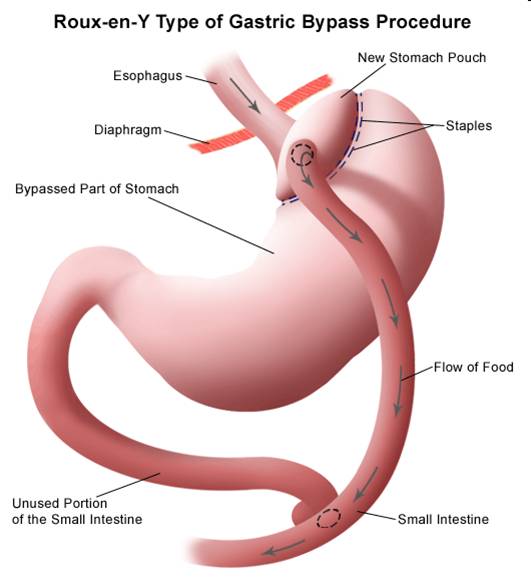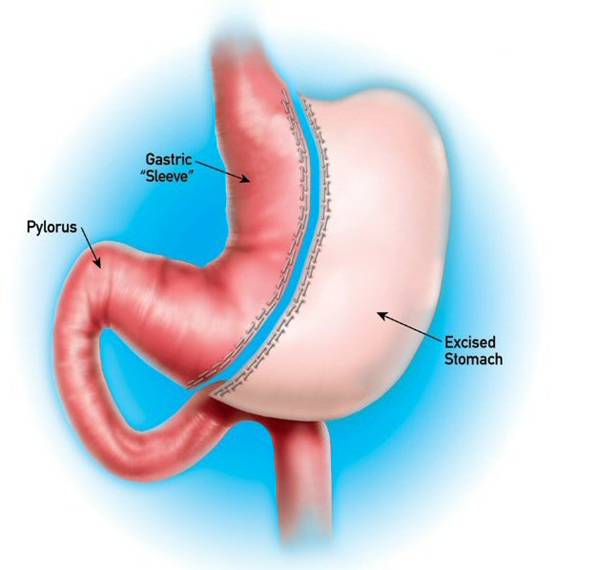Why bariatric surgery?
Obesity is a chronic and progressive disease recognized by medical professionals and the World Health Organization. Obesity is a complex disease caused by the complicated interaction between genetic, hormonal, metabolic, psychological, cultural and behavioral factors. It is associated with numerous other medical conditions including heart disease, hypertension, high cholesterol, type 2 diabetes, sleep apnea, infertility, arthritis and cancers. Patients with obesity have a 50-100% increased risk of premature death when compared to patients with a health weight. Patients suffering from obesity see reductions in life expectancy similar to those seen with cigarette smoking. Like patients with any chronic deadly disease, you deserve the most effective treatment. Unfortunately, once a person is obese, the likelihood that he or she will lose enough weight by diet and exercise alone and remain at a healthy BMI is estimated at 3% or less.
Surgery has been shown to overwhelmingly be the most effective and durable treatment for obesity. Bariatric surgery can impart reductions in excess body weight by as much as 75% in 1 year. It can lead to reductions in coronary artery disease by over 50%. It can lead to improvement or resolution of type 2 diabetes in 75% of patients and reductions in the risk of premature death by 40%. Emerging evidence demonstrates that bariatric surgery can reduce the risk of developing malignancy. Life expectancy after bariatric surgery can increase by as much as 40% after surgery.
Options:

Laparoscopic Roux-en-Y Gastric Bypass
This procedure is sometimes referred to simply as the "gastric bypass" or the "RNY." This is the longest tenured bariatric surgery and thus has a long track record of safety and success. Average expected weight loss is 65%-75% of excess body weight. This is often the procedure of choice in patients with diabetes and reflux disease given that it can cure or dramatically improve these diseases. This is the most technically challenging of the procedures performed at this institution with the longer operating and anesthesia times. Life long vitamin supplementation and abstaining from anti-inflammatory medications is required after this procedure. There is a long term risk of marginal ulcer formation and internal hernia after this surgery. Average hospital stay is 1-2 days.

Laparoscopic Sleeve Gastrectomy
Sometimes referred to as the "VSG" or simply the "sleeve" this is a newer procedure when compared to the gastric bypass. However, it is currently the most popular and commonly performed bariatric surgery in the USA. Average expected weight loss is 60-65% of excess body weight. This procedure is technically less demanding with shorter anesthesia and operative times compared to the gastric bypass. Patients are also required to take vitamin supplements following this operation. Patients see dramatic improvement in their medical problems following surgery, however, patients are at risk of developing new reflux disease after surgery or are at risk of seeing their preexisting reflux disease worsen. Average hospital stay is 1-2 days.
The laparoscopic gastric band has fallen out of favor nationally. If you have a gastric band or are interested in one, feel free to contact us.
To get started:
If you have questions, contact the Bariatric Clinic at 319-688-7880.